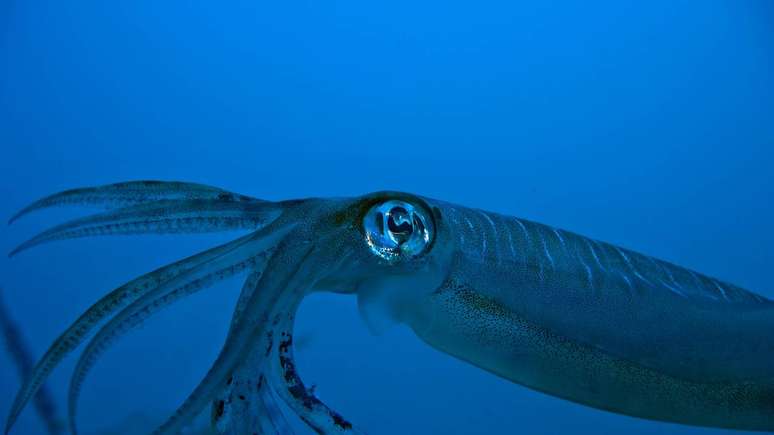The transition to veganism or vegetarianism requires attention, especially related to the nutrients needed by the body
In recent times, more and more people have joined vegetarian, vegan diet or any of its variants. However, what you cannot forget when joining this growing group is that in order to make such a big change in your diet, it is essential to make substitutions and take other measures to ensure your health remains intact.
There are currently several diets that aim to exclude some or all foods of animal origin. There are a few: ovo-lacto-vegetarian (includes eggs, milk and dairy products), ovo-vegetarian (includes eggs), lacto-vegetarian (includes milk and dairy products), strict vegetarian (does not include any products of animal origin) or vegan ( excludes products of animal origin even in hygiene and clothing).
There are also those who follow a Flexiterian diet, in which meat consumption is only reduced. In any case, the benefits are numerous, such as a greater number of fibers, a lower propensity to develop cancer according to studies and a reduced probability of heart disease, hypertension, osteoporosis and type 2 diabetes mellitus.
Reducing or eliminating animal foods can happen all at once or little by little. In both scenarios it is important, as already mentioned, take some precautions.
Find out which ones below:
Exclusion of nutritional deficiencies
Before adopting a vegetarian diet it is advisable to examine whether there are any nutritional deficiencies. To do this, routine tests should be carried out that include levels of iron, vitamin D, B complex (especially vitamin B12), calcium and iodine.
If a deficiency is present, this must be corrected through the correct combination of foods or dietary supplements and with monitoring by a qualified healthcare professional. Barring any nutritional deficiencies, eliminating meat consumption can be immediate if the person wishes.
Balanced diet
Without meat, care must be taken to ensure that the diet is not compromised and that it always contains all the necessary nutrients. Must contain complete proteins (containing all essential amino acids), good quality fats (almonds, nuts, olive oil, avocado), whole grain carbohydrates (cereals, whole grains), vitamins and minerals (fruits, vegetables, legumes) .
For those who eat eggs and milk, it is much easier to get the daily protein required by the body. Strict vegetarians and vegans, however, must obtain larger quantities from other sources. Some possibilities are: lentils, beans, chickpeas, soy, tofu, soy drinks, nuts and seeds.
It is worth mentioning other nutrients that must be present in the diet and how they can appear in vegetarian and vegan diets:
- Soccer: milk and derivatives, enriched plant extracts, dark green leafy vegetables
- Iron: eggs, dark green leafy vegetables, legumes, whole grains, sunflower seeds, pumpkin, dried fruit
- Iodine: seaweed, iodized salt
- Vitamin D: dairy products, eggs, enriched vegetable drinks, sun exposure
- Vitamin B12: dairy products, eggs
Supplements
The Academy of Nutrition and Dietetics has stated that a vegetarian or vegan diet can provide all essential nutrients for children, adolescents, adults, pregnant women and breastfeeding mothers. However, for some people, getting protein, calcium, iron, vitamin B-12 and omega-3 can be a little more difficult.
Therefore, sometimes, it may be useful to evaluate with your nutritionist a food supplement of these nutrients, in particular vitamin B12, iron and omega 3.
Pay attention to the signs
There are a number of signs that show a person is deficient in some important nutrients. Are they:
- Fatigue, tiredness and lack of energy may indicate a lack of iron or vitamin B12
- Immune system problems, such as excessive tiredness, frequent fever and chills, nausea, vomiting or diarrhea, flu that lasts for weeks, ear infections, herpes, stomatitis, tonsillitis, persistent respiratory infections, weight loss, hair loss, weak nails , stress and depression, may be a deficiency of vitamins C, D, E, folic acid, zinc, selenium
- If iodine levels are low, the symptoms are tiredness, drowsiness and dry skin
- Hair loss, weak and brittle nails may indicate an insufficient intake of proteins of high biological value.
If these symptoms appear, seek professional advice and help.
Source: Terra
Ben Stock is a lifestyle journalist and author at Gossipify. He writes about topics such as health, wellness, travel, food and home decor. He provides practical advice and inspiration to improve well-being, keeps readers up to date with latest lifestyle news and trends, known for his engaging writing style, in-depth analysis and unique perspectives.






![A Better Life Preview: What’s in store for Tuesday, October 21, 2025 Episode 446 [SPOILERS] A Better Life Preview: What’s in store for Tuesday, October 21, 2025 Episode 446 [SPOILERS]](https://fr.web.img6.acsta.net/img/fe/c7/fec79870332faf9ba9cf244248ec57c8.jpg)

